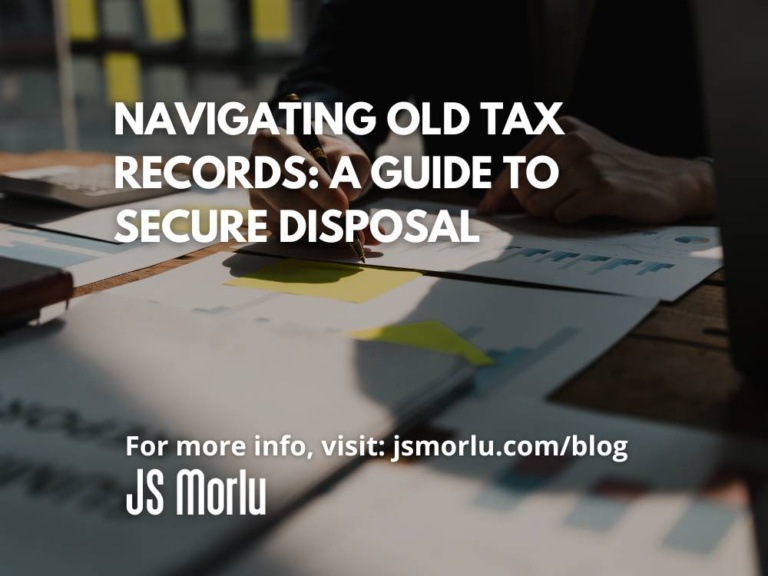Tax season might be over, but the question of what to do with all those old tax records lingers. While you might be eager to clear out some space, it’s important to be strategic about discarding these documents.
There’s no one-size-fits-all answer, as the safekeeping period depends on the type of record and your specific tax situation. This guide will help you navigate the world of tax record retention and ensure you’re not throwing away anything crucial.
The Importance of Safekeeping Tax Records
Tax records serve as proof of income, deductions, and tax payments. They can be crucial in the event of an IRS audit, where you might need to verify the information you reported on your return. Additionally, some documents might be required for claiming benefits or applying for loans in the future.
When Can You Discard Old Tax Records?
The General Rule: 3 Years (or More)
For most taxpayers, the general rule of thumb is to keep tax records for at least three years after the later of the following dates:
- The due date of your tax return (typically April 15th for individual filers)
- The date you actually filed your return (if you filed an extension)
This allows you enough time to respond to potential IRS inquiries. However, it’s important to note that this is just a baseline. There are situations where you might need to hold onto documents for longer.
Exceptions to the 3-Year Rule
Here are some instances where you should keep your records for a longer period:
- Omissions of Income: If you unintentionally omitted more than 25% of your gross income on a tax return, it’s best to keep all related documents for six years.
- Business Records: Business owners should generally keep tax records for seven years from the date the return was filed.
- Property Records: Documents related to property you own, such as purchase agreements, appraisals, and improvement records, should be kept for at least three years after you sell or dispose of the property. This is important for calculating depreciation, amortization, or capital gains/losses.
- Identity Theft Prevention: Be mindful of discarding documents that contain sensitive information like your Social Security Number, driver’s license number, or bank account details. These are prime targets for identity thieves. Consider shredding such documents before disposal.
Consider Keeping Tax Returns Indefinitely
While supporting documents can eventually be discarded after the safekeeping period, it might be wise to hold onto your actual tax returns for a longer period, even indefinitely. These returns act as a complete record of your tax history, which can be helpful for future reference or when dealing with complex financial situations, like applying for a mortgage.
Safe Disposal of Tax Records
Once you’ve determined what documents you can safely discard, remember to dispose of them securely. Here are some tips:
- Shredding: This is the most secure way to dispose of paper documents containing sensitive information. A cross-cut shredder is recommended for maximum security.
- Secure Digital Disposal: If you’re discarding electronic files, simply deleting them might not be enough. Use data wiping software to ensure the information is permanently erased.
Conclusion
Decluttering your tax files can be a liberating task, but it’s crucial to do so responsibly. By following the guidelines outlined above, you can ensure you’re discarding documents safely while maintaining peace of mind with your tax history. Remember, if you have any specific questions or concerns regarding your tax records, it’s always best to consult with a professional tax advisor.
JS Morlu LLC is a top-tier accounting firm based in Woodbridge, Virginia, with a team of highly experienced and qualified CPAs and business advisors. We are dedicated to providing comprehensive accounting, tax, and business advisory services to clients throughout the Washington, D.C. Metro Area and the surrounding regions. With over a decade of experience, we have cultivated a deep understanding of our clients’ needs and aspirations. We recognize that our clients seek more than just value-added accounting services; they seek a trusted partner who can guide them towards achieving their business goals and personal financial well-being.
Talk to us || What our clients says about us


